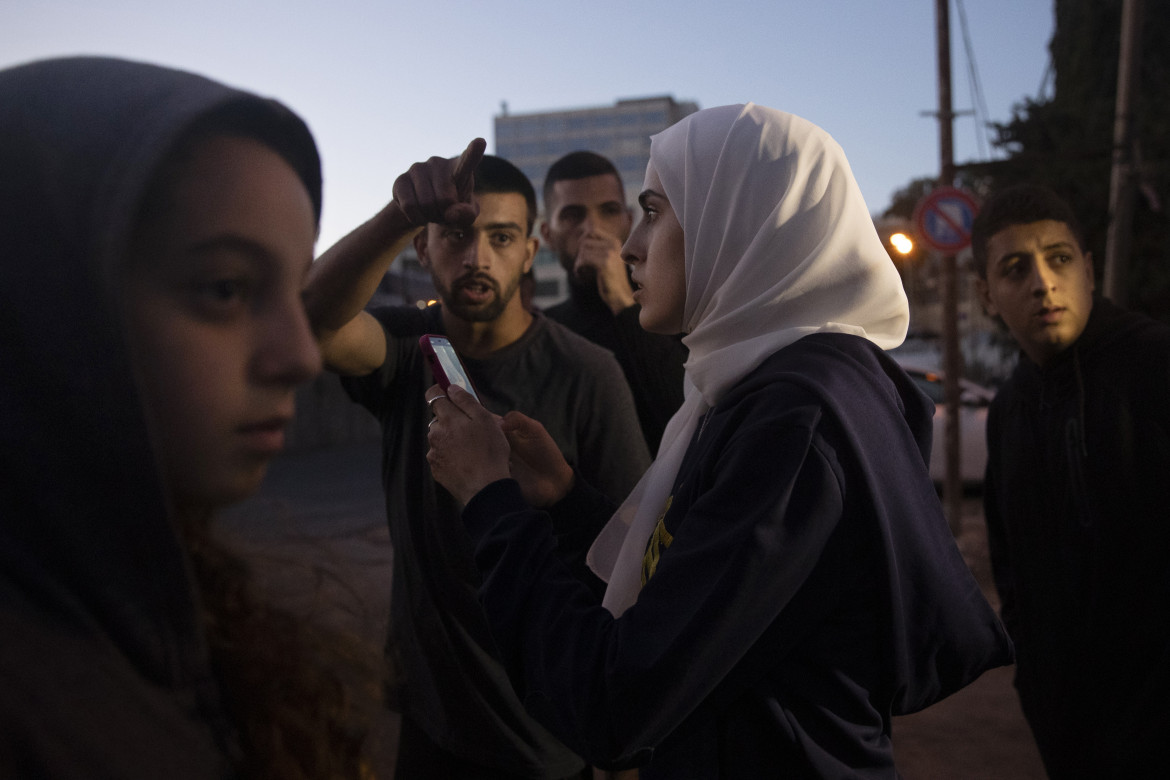Interview
Muna el Kurd: We are the new generation, the same resistance with new ideas
We spoke with Muna el Kurd, the face of protests in Sheikh Jarrah and, along with her brother, among Time magazine’s 100 most influential people. ‘We no longer use diplomatic language. We call things as they are: ethnic cleansing, apartheid, forced eviction, war crime.’

Muna el Kurd was just 11 years old when she returned from school to find half of her house occupied by Israeli settlers. “There were so many policemen outside, I remember the sirens wailing. My grandmother was taken to the hospital — she was feeling sick. She had lived through the Nakba, she had been driven out of her city, Haifa.”
Muna is now 23 years old and is fighting to save what remains of her home: her family is one of 28 households in Sheikh Jarrah, a Palestinian neighbourhood in East Jerusalem, threatened with eviction by the Israeli authorities in favor of Jewish settler associations that are claiming ownership.
We met her in Ponsacco, during the “Palestine calling” event organized by ARCI, a few days before her inclusion (together with her twin brother Mohammed) on the list of the 100 most influential personalities of 2021 drawn up by Time magazine.
At the beginning of August, the court proposed an “agreement” with the settlers, which you refused. What is the situation now in Sheikh Jarrah?
At the last hearing, the judge asked us to sign an agreement with the settlers: to recognize their ownership of the land and pay rent in exchange for the possibility of staying in our homes temporarily. We refused. Now we are waiting for the date of the new hearing. The situation in the neighbourhood is only apparently calm: my neighbour, Murad Atiyeh, was arrested on 10 August. The Israeli government wants to send us a message: we can arrest you at any time. Murad had done nothing except defend his home.
Do you expect another settlement offer from the court?
It’s possible, but we still won’t accept. The land is our property and we won’t give up an inch.
In April and May, the whole of Palestine rose up on account of Sheikh Jarrah. Why was your neighborhood able to inspire such a mobilization?
I think it was a combination of things. Also under threat at that time were the Al Aqsa Mosque and the Damascus Gate. In Sheikh Jarrah, we were able to use social media in a very intelligent manner, communicating clearly to the world about our situation and the attempt of the Israeli government and settlers to take over our homes despite not having a single document attributing ownership to them. The video I shot of Yakub, the settler who occupied my house in 2009, certainly had a great effect: his frank words admitting that what he had done was theft is an admission that the entire state of Israel is founded on the theft of Palestinian land, homes, and lives. He was very honest, and rude: “If I don’t take it, someone else will,” he says in the video. It was a surprise to everyone: an Israeli settler came from the United States to take over my house. Finally, we young people have played a role: we don’t want to live a new Nakba like our grandparents and parents did in 1948 and 1967. We won’t take any more of these Nakbas.
Is there a difference in the approach to the national liberation movement between the new and old generations?
We young people have been able to unite the Palestinians without the support of political parties. Ours is a mobilization without parties, spontaneous but profoundly political. We haven’t organized into groups or given structure to the movement, the movement was born by itself. We were surprised by it ourselves. We certainly learned a lot from the experiences of our grandparents and parents, with years and years spent resisting throughout Palestine. The new generation has the same power of resistance, but different ideas and no fear. And most of all, we no longer use diplomatic language. We call things as they are: ethnic cleansing, apartheid, forced eviction, war crime. No one expected us young people to have such political awareness and clear ideas about what we want. We have shocked everyone, especially the adults.
In Jerusalem, the Israeli authorities have closed Palestinian cultural centers and political centers. Where do you meet? Where do you hold debates?
There are no physical places to meet and discuss: we meet in open spaces, in parks or at the Damascus Gate. In many Palestinian neighbourhoods of Jerusalem, Israel has opened so-called “public centers,” but we’re boycotting them, because their aim is to make us accept a coexistence without equality, to become “good Palestinians” who love Israel despite the occupation. These are places of normalization, and Israel has invested a lot in them, about 20 million shekels a year (€4 million), envisioning these centers as places for a false integration, a false inclusion that would be able to stop the protests that are returning regularly.
In the summer, after the killing of Nizar Banat, there were many demonstrations against the Palestinian National Authority in the West Bank. How did you experience this repression in Jerusalem?
It was shocking. To see Palestinians beating other Palestinians and killing activists was very hard to take in. Especially because it happened after what we had been able to achieve in Jerusalem and the rest of Palestine in the previous months. It is time to change this leadership. I don’t believe in them, they are tied to the occupation, they are corrupt. We are fighting an occupation, and now we have to waste time fighting our own leaders.
Originally published at https://ilmanifesto.it/muna-el-kurd-noi-giovani-senza-partito-stessa-resistenza-nuove-idee/ on 2021-09-17
